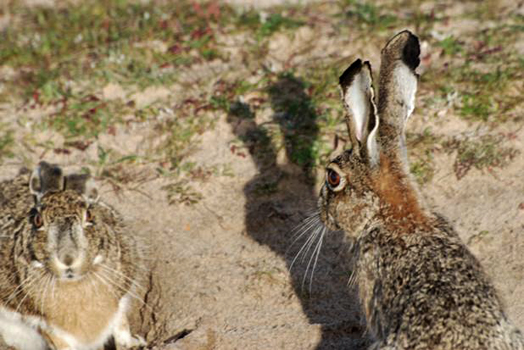The Iberian hare (Lepus granatensis) is a widely distributed endemic species in the Iberian Peninsula. To improve knowledge of its population dynamics, the relative abundance and population trends of the Iberian hare were studied in the autumns of 1995–2012 in a protected area (Doñana National Park) by spotlighting in 2 different habitats: marshland and ecotones. The average relative abundance was 0.38 hare/km (SD = 0.63) in the marshland and 3.6 hares/km (SD = 4.09) in ecotones. The Iberian hare population exhibited local interannual fluctuations and a negative population trend during the study period (1995–2012). The results suggest that its populations are in decline. The flooding of parts of the marshland in June, July and October favor hare abundance in the ecotone. Hare abundance in the marshland increases as the flooded surface area increases in October. These effects are more pronounced if the rains are early (October) and partially flood the marsh. By contrast, when marsh grasses and graminoids are very high and thick, the abundance of hares decreases dramatically as does the area of the marsh that is flooded (in November). información: [at]ebd.csic.es: Carro & Soriguer (2017) Long-term patterns in Iberian hare population dynamics in a protected area (Doñana National Park) in the SW Iberian Peninsula: effects of wheather conditions and plant cover. Integr Zool DOI: 10.1111/1749-4877.1221
http://onlinelibrary.wiley.com/doi/10.1111/1749-4877.12212/abstract


 Dinámica de población de la liebre en Doñana
Dinámica de población de la liebre en Doñana

